Religion

Women, Music, and Judaism in America
Jewish Women in the New Testament
The New Testament describes Jewish women’s social roles in the late Second Temple period: in the home, in business ventures (especially textiles), in synagogues and the Temple, serving as patrons of the early Jesus movement, and as suffering from and being healed of various ailments. Despite the variety of examples of women’s agency, many Christian interpreters paint an historically inaccurate picture of a misogynistic culture in order to show Jesus, Paul, and their early movement as progressive on women’s issues.
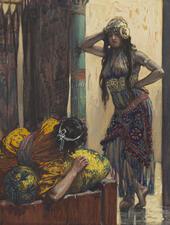
Jezebel: Bible
Jezebel was a Phoenician royal whose identity and name have come to signify a power-hungry, violent, and whorish woman. However, her narrative shows that she wielded significant power and was one of few women to do so in the Bible, and resentment of her can be at least partially attributed to the general scriptural dislike of powerful women.

Jezebel: Midrash and Aggadah
Jezebel is portrayed by the Rabbis as a wicked woman who represents the negative influence of Gentile women who turned Israel’s heart to idolatry; an evil woman who causes the king of Israel to stray from the ways of the Lord. Nevertheless, the Rabbis also indicate a favorable aspect of her character.

Jochebed: Bible
Jochebed, wife of Amram and mother of Moses, Aaron, and Miriam, is mentioned by name only in Exod 6:20 and Num 26:59, both genealogical listings. Jochebed, whose name (Hebrew yokheved) apparently means “YHWH is glory,” is notable as the first person in the Bible to have a name with the divine element yah, a shortened form of YHWH.

Jochebed: Midrash and Aggadah
The midrash portrays Jochebed as a wise woman who was righteous and God-fearing. By merit of her good deeds, she gave birth to the three leaders of the Exodus generation: Moses, Aaron, and Miriam.
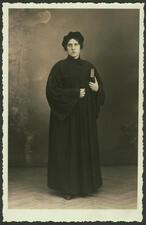
Regina Jonas
Regina Jonas longed to become a rabbi for most of her life, and despite significant obstacles, was ordained in 1935. As the first ordained female rabbi, she worked in Berlin until her deportation to Theresienstadt, where she continued to preach, teach, and inspire her fellow inmates until her final deportation to Auschwitz.
Norma Baumel Joseph
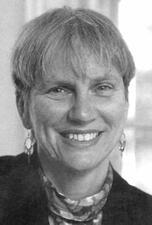
Judaic Studies in the United States
When the Association for Jewish Studies (AJS) was established in 1969 as the professional organization of scholars in the interdisciplinary field of Judaic studies, there were no women among its founders. Within the past few generations, however, a field that was traditionally dominated by men has gradually witnessed the emergence of many women scholars.
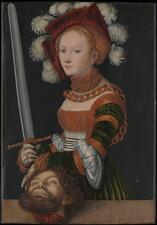
Judith: Apocrypha
The apocryphal book of Judith tells the story of an Assyrian invasion of Israel, led by a man named Holofernes. Judith, a widow in a besieged Israelite town, seduces and murders Holofernes, securing victory for Israel.
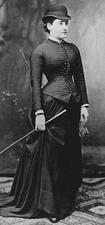
Juedischer Frauenbund (The League of Jewish Women)
Founded in 1904, The League of Jewish Women pursued secular German feminist goals while maintaining a strong sense of Jewish identity. The League supported vulnerable women through practical social reforms while fighting for political power within the German Jewish community. It saw employment opportunities as essential to women’s economic, psychological, and emotional independence.
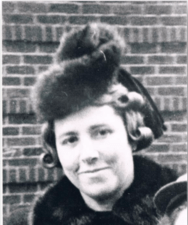
Irma Rothschild Jung
Irma Rothschild Jung, a native of Randegg, Baden, Germany, was born on July 1, 1897, and until her death close to a century later, dedicated her substantial energies to pioneering Jewish communal programs in aid of the needy. Her leadership and influence were deeply felt in the broader Jewish community by the countless individuals, young and old, who benefited from her generous spirit.
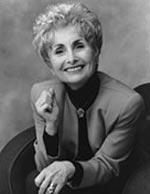
Esther Jungreis
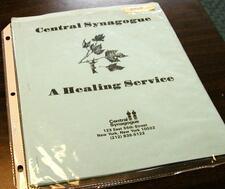
JWRC: Eleanor Leff Jewish Women's Resource Center
Elena Kabischer-Jakerson
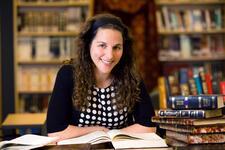
Lila Kagedan
Margarete Kahn
German mathematician Margarete Kahn worked with fellow Jewish woman Klara Löbenstein and their essential contribution to a famed problem was cited in the publications of several others. Despite earning her doctorate and having a significant impact in her field, Kahn was unable to earn a post-doctoral degree due to discrimination against women, and she worked as a teacher until she was deported by the Nazis.
Miriam Kainy
Miriam Kainy, Israel’s first established woman playwright, won the Israel Prime Minister’s Literary Prize in 1997. All sixteen of her plays were written in Hebrew and produced by Israel’s established theater companies. Kainy has also written manuscripts for radio and television and adapted dramas from English and Yiddish into Hebrew.
Ida Kaminska
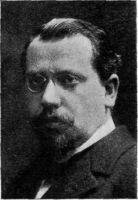
Mordecai Kaplan
Regina Kaplan
Regina “Kappy” Kaplan was nurse, teacher, hospital administrator, and health care innovator. Most notably, Kaplan helped break down gender barriers in medicine by creating the first nursing school in the South that admitted male students.
Karaite Women
Family law and personal status of women are important aspects of both the daily life and the halakhah of Karaite communities. Karaite legal sources often deal with rules pertaining to betrothal, marriage, divorce, ritual purity, and incest.
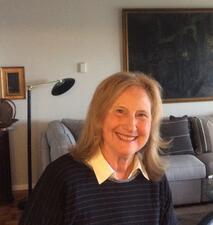
Debra Renee Kaufman
Debra R. Kaufman has been a central voice in sociology, feminist studies, and Jewish Studies for over four decades. Her scholarship has spanned topics such as the role of women in Orthodox Judaism, post-Holocaust Jewish identity narratives, and contemporary American Jewish identity.
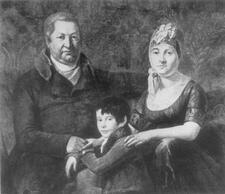
Chaile Raphael Kaulla
Chaile Raphael Kaulla was the most influential Jewish woman entrepreneur and one of the last Court Jews in eighteenth-century Germany. A devout Jew, Kaulla supported both Jewish and Christian poor people, founded a hostel for Jewish travelers, and in 1803 donated a bet midrash, library, and funding for three rabbis to her town of Hechingen. The Austrian Emperor honored Kaulla in 1807 and she and her family were allowed to live in Stuttgart with rights equal to those of Christian citizens.


